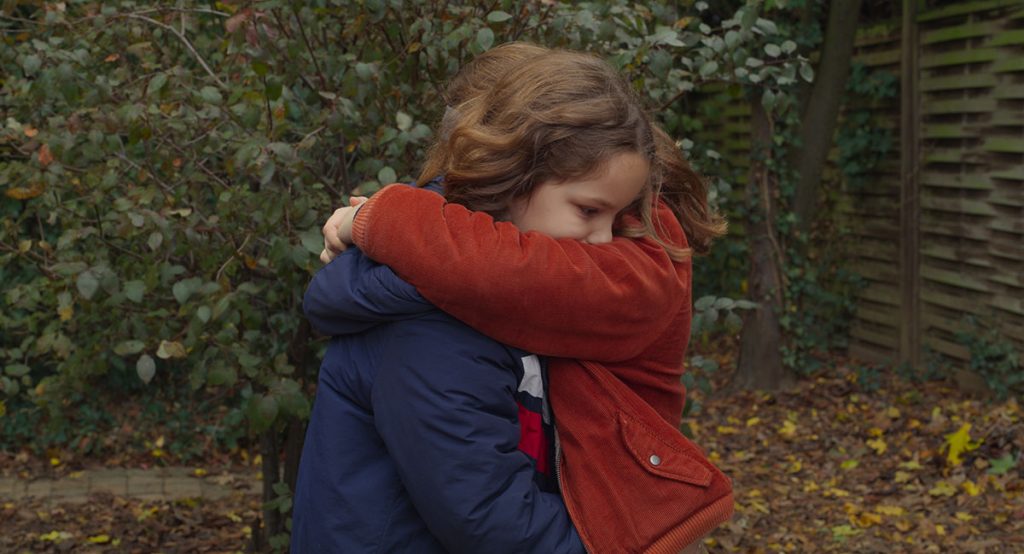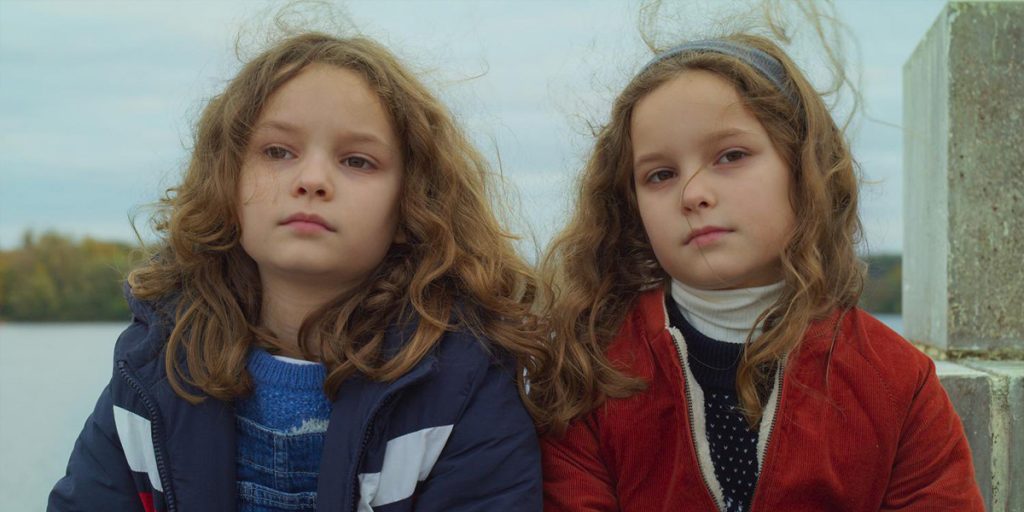Petite Maman is yet another intimately emotional epic from Céline Sciamma, who masterfully explores the relationship between mother and daughter.
Céline Sciamma was a formidable figure in the art film world for years before 2019’s Portrait of a Lady on Fire – having established herself early with her daring feature film directorial debut Water Lilies and fierce follow-ups Tomboy and Girlhood – but it was that delicate romantic drama that shot her career into the stratosphere, earning her attention and acclaim from every corner of the industry. Thanks to her tender cinematic touch and consuming female gaze, Sciamma’s period lesbian love story felt like a revelation, portraying acts of passion in ways that were previously unseen in cinema. It should come as no surprise then that her next feature was fervently anticipated and, while Petite Maman isn’t nearly as novel a creation as Portrait of a Lady on Fire, its compelling emotional core and poignant lead performances make the film a wonderfully worthy successor to her stone-cold classic from two years prior, exploring the relationship between a mother and daughter with as much care and consideration as she afforded Portrait’s central romance.
Petite Maman begins shortly after the passing of 8-year-old Nelly’s (Joséphine Sanz) grandmother, a loss that weighs heavily on her mourning mother Marion (Nina Meurisse), despite her best efforts to hide it. As they leave the retirement home where grandma was living out her last days and head off to her house to finish packaging up all she has left behind, Marion grows dramatically distant – both figuratively and literally – unexpectedly leaving Nelly with her father (Stéphane Varupenne) with no word of where she’s going or when she’ll be back. To keep herself busy, Nelly takes to playing in the woods behind her late grandmother’s house, where she stumbles across an unfinished fort-of-sorts and a young girl of her same age also named Marion (Gabrielle Sanz, Joséphine’s twin sister) who asks for her help, marking the beginning of a beautiful friendship. Has Nelly truly traveled back in time and met the younger version of her mother, or is this a fantasy formed in her forlorn mind? Sciamma wisely refrains from offering any explicit explanations for this occurrence, assuring that we’re laser focused on the love between these two and Nelly’s increasing understanding of her mother’s identity first and foremost.
Sciamma keeps her story simple in Petite Maman – with the film primarily portraying a series of “playdates” between Nelly and young Marion – but her script is so subtly stirring regardless that this simplicity is never a hindrance by any stretch of the imagination. And although some may struggle with the pacing of the picture, as it is largely devoid of any dark or daunting drama and prefers to proceed leisurely, this makes it feel even more like a collection of a child’s exploits, where one has all the time in the world and is never in a rush. In between all their palling around, Sciamma skillfully peppers in bits and pieces about Marion’s personality, shedding a light on her own struggles (including a hereditary bone disorder, which she is soon receiving surgery for) and helping Nelly learn more of the layers of her life. When we’re younger, our parents are practically mythical figures who can do no wrong in our eyes, and we trust in them wholeheartedly. Petite Maman reminds us that parents are people too – they’re not perfect, sometimes they’re sad, and they might not always make the best decisions. And once you experience this realization, these relationships can evolve exponentially, with a newfound respect for your parents’ complexities and contradictions.

Much of this messaging is in the subtext of Petite Maman instead of being explicitly spelled out, but young newcomer Joséphine Sanz’s performance is so perceptive that we witness her making sense of her mother’s multidimensionality in real time with mere gestures or glances. It’s the type of emotionally advanced acting we’d expect from an actress twice her age, and yet here Sanz is, pulling it off without a hitch and anchoring a major motion picture magnificently. Her sister Gabrielle is no slouch either as young Marion, feeling similar enough to Joséphine’s Nelly to convince audiences of their common ancestry but also capturing qualities of the older Marion to prove that she is truly her prior self, from her meditative melancholy to her calming compassion. Thankfully, since Petite Maman isn’t mainly a dour drama, the girls have plenty of time to play and paint a charming picture of childhood as well, with their (unsurprisingly) convincing chemistry selling all sorts of delightfully silly scenes (such as one in which Nelly and Marion cause a cooking fiasco trying to make pancakes). Additionally, while Meurisse’s role is much smaller compared to the twins’, she makes the most of every moment, especially in a climactic conversation with Nelly, where she’s finally able to share her perspective of recent events and let her daughter into the darker parts of her life.
Petite Maman doesn’t have many surprises up its sleeve – and these themes have been touched on in many films that have come before – but the sheer fervor that Sciamma suffuses into every frame of this film is too riveting to resist, as her passionate ode to the relationships between parents and children will hit at the heart of every audience member, asking us too to see our mothers and fathers as more than the “parental figure” roles they fulfill in our lives and regard them with the reverence and respect they deserve. Led terrifically by twin breakout stars Joséphine and Gabrielle Sanz, this touching tale may not be the most “exciting” film you see all year, but it will undoubtedly be one of the most moving and magically mounted, as Céline Sciamma proves incapable of making anything other than an intimately spellbinding stunner.
Petite Maman premiered at TIFF on September 9, 2021, and was released in cinemas across the UK on November 19 and on MUBI on February 18, 2022. The film will be released in US theaters on April 22, 2022.

